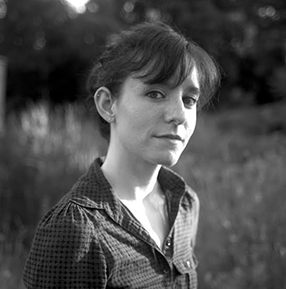Darwinist Logic on Unrequited Love
To begin with the end, what the rain
did not uncover. A teacup overflows,
we call it a spill; a riverbed overflows, we
call it a flood, what it is to be
swept away. Great is the power of steady
misrepresentation, writes Darwin. I like
things that light up on their own—
the headlights on my new car when we
drive under a bridge. I like how
it doesn’t distinguish between different types
of darkness. Darwin again: I am not
the least afraid to die. Well,
I burned my thumb last night
on the kettle, distracted
by the buzzing of my phone—
my mother again. There is still some pleasure
in dissection—what admirably
well-adapted movements
the tip of a root possesses. I like things
that come apart easily
in my hands—dried leaves, clumps of sugar—
Do you remember, before wireless,
when to unplug meant getting
on your knees to jerk the cord from the wall? Now
if you want to disconnect,
you have to ask nicely. Off/on;
let go/resurrect—the game your mind plays
in dreams, holding him up—no, a simulacrum
slipping its cage in my consciousness. Daytime
calls me to wakefulness, its dog home
from the walk, from the bewildering folly
of weather. Turns out these purple statices
on the dresser stand for
remembrance but I don’t need
any help remembering. They are right
in front of me—they have fully loaded.
Copyright © 2017 by Katie Willingham. Originally published in Poem-a-Day on March 27, 2017, by the Academy of American Poets.
“I see Darwin’s work as such an important lens for how to understand our world, so I wondered what would happen if I leaned on him further, in more unusual contexts. One way to see this is that he provides the backbone of the poem, but at the same time, the speaker makes this happen, such that they become inextricable.”
—Katie Willingham

